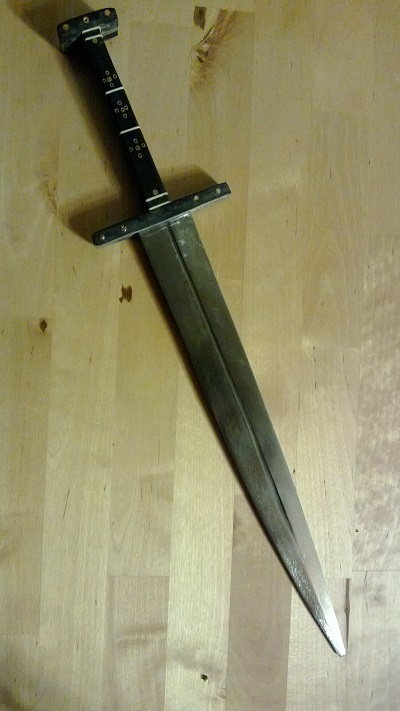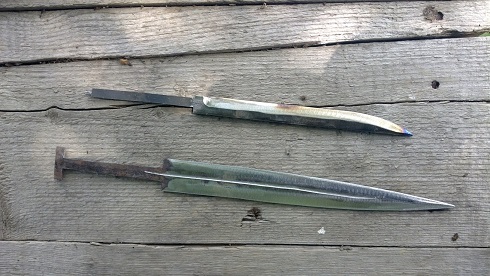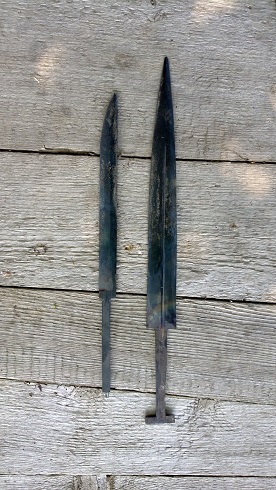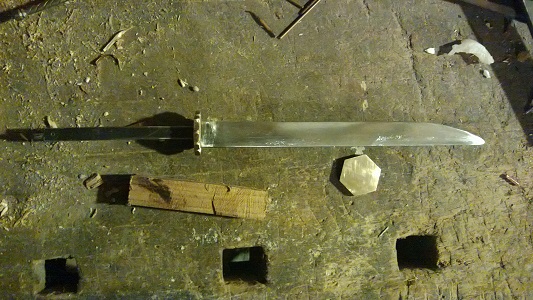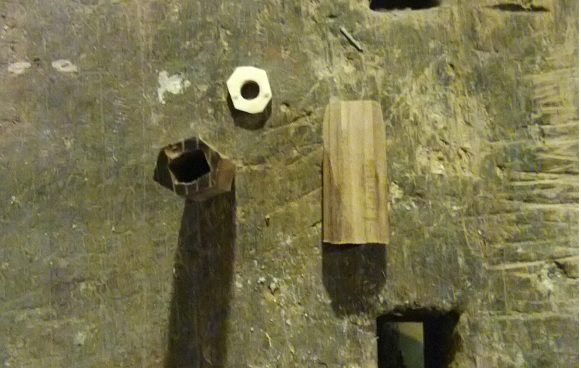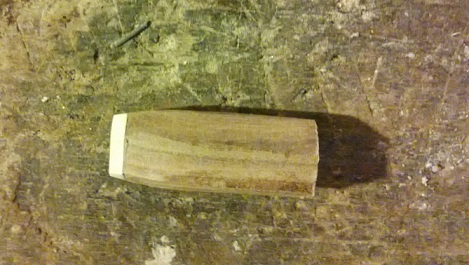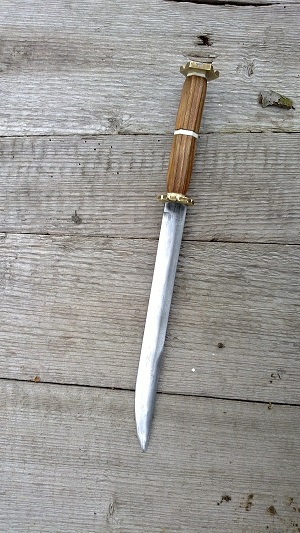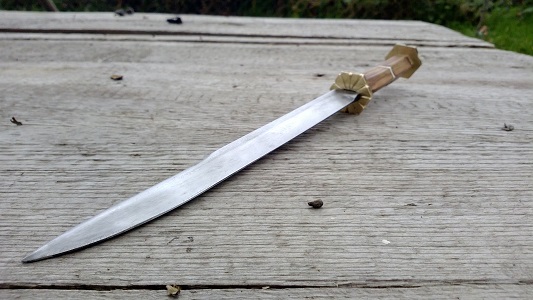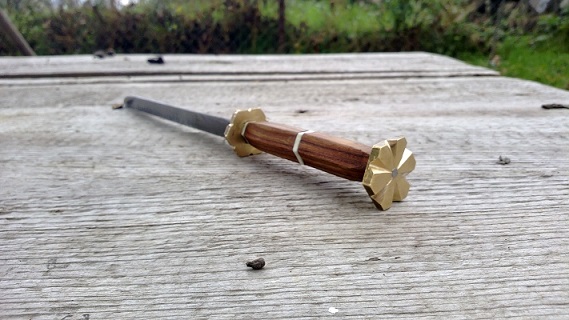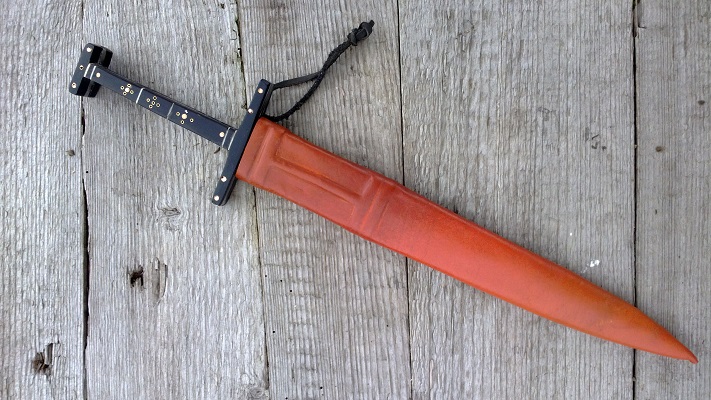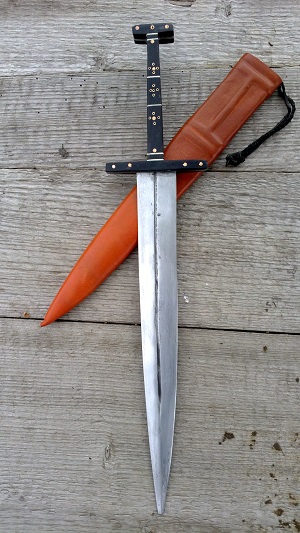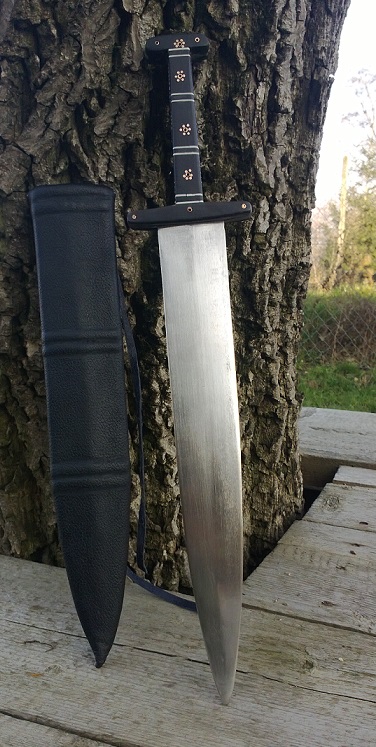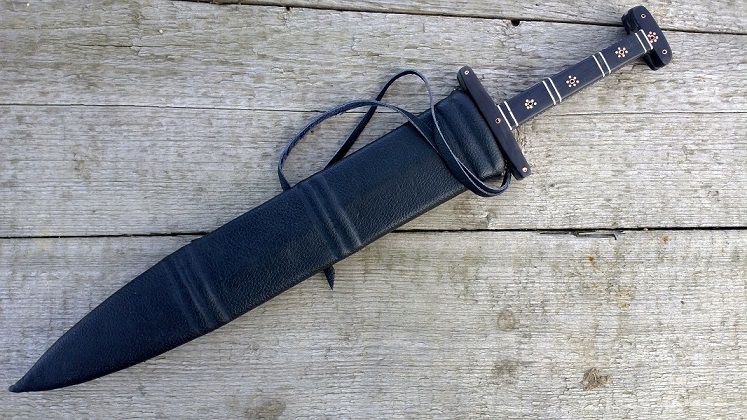Posts: 399 Location: Slovakia
Tue 29 Oct, 2013 10:57 pm
here are some pictures of progress on the baselard. I did not take photos during the "production" itself, as my phone ( = camera) was broken, but:
1. after some initial cleaning and
polishing I´ve made an iron core of the lower guard. It´s made from two halves, sandwiched around the blade and riveted. The construction is visible on the first picture.
2. then I did some filework on both sides of the handle.
3. I have cut (with hacksaw) blocks of horn, shaped them roughly with files, and riveted on the handle and guard. I´ve used bi-metal rivets, with brass core and a thin copper wrapping. there were four rivets used for the lower guard, four on the handle, and three on the upper "pommel" part. See picture 2 - rivets on the handle are already smoothed, those on the crossguard are still rough.
4. then I´ve shaped the handle again and smoothed it a bit with files. I´ve decided to make it more flashy (after all, this will be for the civilian kit), so I´ve added some thin bone inserts and tubular brass rivets (they are not functional). making these thin bone rivets was a real pain - I had to cut a thin layer from bone (with hacksaw) and smooth them with files and sandpaper. I tried to make them just a little bit broader than the slots that were cut to the horn - horn is little "plastic" so this should hold the inserts securely, but I have still used also a drop of glue. I will need more practice with that as the result is not perfect, as you can see on pictures 2 and 3...
5. After that I have smoother and polished it again with files and sand paper. See picture 3.
There is still a long way to go from here - I will try to correct some flaws on the handle with files, then try to polish it to as high shine as possible (and the same for the blade), and make a nice scabbard. So more pictures will follow.
I´m also working (more slowly) on the rondel, so I will post some pictures of that later.
Any thought or suggestions are welcome.
 Attachment: 97.79 KB
Attachment: 97.79 KB
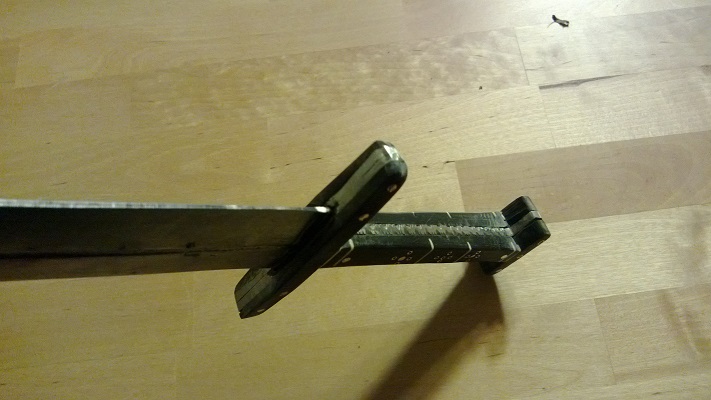
 Attachment: 37.78 KB
Attachment: 37.78 KB
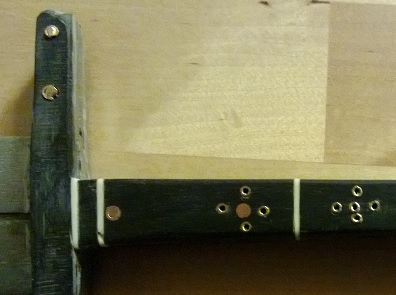
 Attachment: 100.97 KB
Attachment: 100.97 KB
